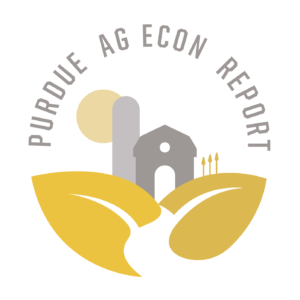Global Warming: FAQ’s
February 13, 2001
PAER-2001-2
Stephen B. Lovejoy, Professor
Is there a greenhouse effect?
Certainly, without the Earth’s atmosphere acting to retain heat, we would freeze to death.
Is the Earth’s climate changing?
Certainly, it has always been cooling or warming; thus the Ice Ages and the Age of Dinosaurs.
If the Earth warms by several degrees will that have major social and economic impacts?
Certainly, the very idea of how we could cope with much higher sea levels and oppressive year around temperatures suggests economic dislocations and changing geopolitics. Of course, warmer weather would require less home heating and promote plant growth.
Does the evidence suggest that temperatures are rising?
Not necessarily, while some land stations record higher temperatures over the past century, satellite observations show tremendous stability in temperature over the past few decades.
How can the trend of readings on land be different from the trend of atmospheric readings?
One of the explanations is measurement error from land stations. This occurs by changes in measuring protocols (the average of 6 daily measurements versus the average of the daily high and low temperature). Poor maintenance of the measuring stations may also have an effect (less frequent painting with white paint and more dirt clogging ventilation openings). Also changes in the surrounding microclimate will have an impact; more pavement and concrete create urban heat sinks or increased vegetation around the gauging station can reduce cooling winds.
What is the scientific bottom line? Is the planet warming?
The evidence is very contradictory. While many climate models still predict warming in this century, their predictions are not consistent, internally or externally. They cannot predict the relationship between emission of greenhouse gasses and temperature.
Does the evidence show that increasing the concentration of carbon dioxide has led to global warming?
No, recent research suggests that carbon dioxide has little or no effect as a greenhouse gas.
Should we be concerned about the emission of carbon dioxide from our factories, homes and cars?
Certainly, changing the concentration of atmospheric gasses is no laughing matter. The composition of our atmosphere is critical to our survival although we have limited understanding of what impact our actions have on the atmosphere.
Isn’t it still a wise action to reduce carbon dioxide emissions, just in case?
That depends upon how much risk we think there is, the potential impacts of the changes in carbon dioxide concentrations, the costs of the abatement strategies and most importantly, what environmental improvements are we giving up by allocating our time and money to curtail CO2 emissions.
But how important is cost when we are talking about the health of our planet and ourselves?
Cost is still important because we have numerous alternative actions to protect our health and the health of our planet. As an environmentalist, I want the most environmental protection for every dollar I spend or every hour I contribute.
But how can we compare environmental protection with other concerns like it was a sweatshirt or a car?
If the resources used to reduce CO2 emissions could be used to restore wetlands or clean up hazardous waste, which should we undertake? That becomes the crux of the matter. While science can answer what-if questions (e.g. if A, then B), science cannot answer the big questions of how to value the consequences (e.g. which is more important, B or C?). Citizens must answer these value questions; through their market behavior, their voluntary actions and their voting.
Was the Presidential election of 2000 important for the quality of our environment in general and global warming in particular?
Certainly. The candidates expressed very different viewpoints about environmental protection and suggested very different strategies for achieving our goals. Mr. Gore suggested ratifying and implementing the Kyoto Protocol while Mr. Bush said we should fund more research but not implement the provisions of the Kyoto Protocol.
What is the Kyoto Protocol?
It is an international agreement which would, if ratified by Congress, require the United States, by 2005, to limit CO2 emissions to 93% of 1990 levels.
What would be the impact of such a reduction?
Analysis by the Dept. of Energy predicts that if the US complies with the Kyoto Protocol, the price of natural gas would increase 147%, electricity would go up 86% and gasoline prices would rise by 53%.
Is it worth it?
Science cannot answer that question. It is a policy question based upon our values.
Is reducing CO2 emissions important?
Probably!
How important?
No one knows for certain. The better questions may be, “Is this the best way to spend our environmental protection dollars?” or “How important is curtailing CO2 emissions compared to other environmental problems?”
This new President and Congress, will partially answer the question of our preferred strategy for protecting the environment. Let us be certain that decisions are based upon the best science, an understanding of our values and clear recognition of the trade-offs we are making.

